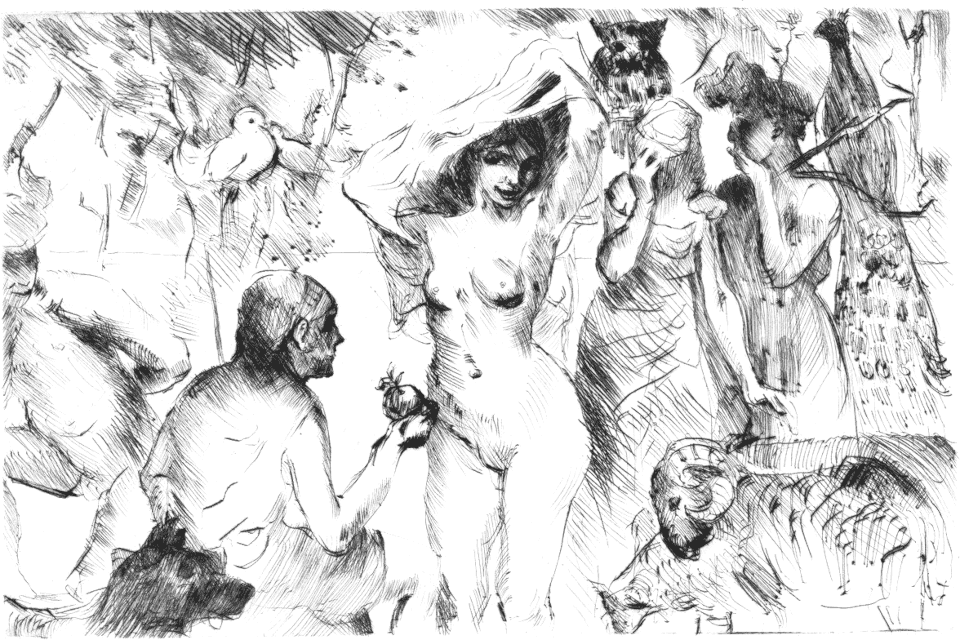
The Bhagavad Gita describes three paths ("yogas") to divinity: the path of action, the path of knowledge, and the path of devotion. These three paths don't seem to be described in classical sources, but it seems to me that the myth of Discordia and Her golden apple does an adequate job of mythologizing it: Discordia throws the apple between the three goddesses (symbolizing the split nature of our appetition, here in the sensible world) and Jove (symbol of divine law) delegates adjudication to Paris (who represents the human soul). Which goddess does he give the apple to?
Juno, here, represents power and action, and Her path to divinity is to live one's entire life as a form of prayer or offering. I think this is visible in her mythic champion Hercules and the path is classically exemplified by Diogenes.
Minerva, here, represents reason and knowledge, and Her path to divinity is the training of the mind to go beyond material concerns. Given that Athens was especially dedicated to Her, this is the path most heavily emphasized in classical times, and we have our pick of exemplars, from Pythagoras to Plato to Proclus.
Venus, here, represents love and beauty, and Her path to divinity is explicit devotion or love to some divinity. The Greeks generally and the philosophers specifically were pretty negative on Venus—as seen in the myth, no good comes of Paris giving the apple to Her—and yet I still think we see this path exemplified by Plotinus and Porphyry (though perhaps it's fairer to say of those two that they divided the apple between Venus and Minerva).
Socrates makes an interesting case study, here as elsewhere, as it seems to me that he balanced all three paths in roughly equal measure.
I've noted before how these three relate to Plato's faculties of the soul. While I think that model has its issues, it's certainly natural to assume that souls tend towards the path that plays to its specific strengths.